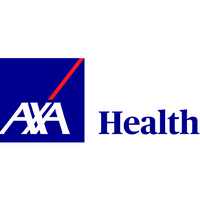Data collection, quality and analytics issues are holding back employers’ wellbeing programmes

REBA’s Employee Wellbeing Research 2020 report, undertaken in association with AXA PPP healthcare, shows that 92% of employers are now using management information to assess the effectiveness of their wellbeing initiatives, compared with 74% in 2019.
Debi O’Donovan, co-founder and director of REBA, comments: “Given the vital role wellbeing plays in reshaping work and jobs, it is not a surprise that measuring effectiveness is receiving greater focus. However, most employers are still using proxy figures, such as employee engagement, rather than attempting to see shifts at a strategic business level.”
Almost three quarters use employee engagement levels (72%) and employee absence rates (70%), while two thirds (66%) look at wellbeing programme participation rates to evaluate their schemes.
Fewer employers consider financial measures, with 20% calculating the return on their wellbeing investment in terms of common HR targets, such as absence and retention rates.
“In time, as reporting methods strengthen, we may see more emphasis on how secure employees feel in their jobs or whether they feel a sense of purpose in their work, for example,” says O’Donovan.
“It’s also important to measure and re-visit risks, such as business finances or workforce planning, alongside population data such as measures of employees’ mental health,” she adds.
The research found some significant obstacles are hindering employers’ attempts to measure the effectiveness of wellbeing initiatives – limited availability of (49%) and poor quality data (43%), lack of suitable data collection (36%) and analysis (31%) platforms and lack of data analytics expertise (25%).
Soraya Chamberlain, director, corporate at AXA PPP healthcare, says it’s heartening that the majority of employers are attempting to measure the effectiveness of their initiatives.
“But, to better evidence progress, we need to address some significant issues around data availability, quality and analytics. Thankfully, they’re not insurmountable and with the right resources, insight and determination, more effective wellbeing strategies are within reach,” she says.
On the plus side, the REBA report shows that employers are integrating their health insurance and wellbeing support offerings more effectively, with 82% agreeing these are complementary compared with 68% in 2019. Cost, siloed product offerings and internal management of benefits are cited as the biggest barriers to better integration.
In terms of wellbeing priorities, mental health remains the top concern for boardrooms across the UK, with 89% of respondents saying that this is their bosses’ first (67%) or second (22%) biggest employee wellbeing concern. 69% ranked physical wellbeing in their top two concerns, and a quarter (25%) cited financial wellbeing.
“The COVID-19 crisis has reinforced the message that to be sustainable, an organisation needs to be innovative and resilient. That can only happen with a good culture and positive employee experience. Wellbeing is at the core of achieving this,” concludes O’Donovan.
The report is free to download for REBA members and contains a wealth of data, in-depth case studies and insights from top thinkers in the field of employee wellbeing.
This year’s Employee Wellbeing Congress is also considering how employers need to innovate as we move from a period of surviving to thriving. The new world order means employers have to find new ways to engage, motivate and protect the wellbeing of employees.
Join us every Wednesday between 9 and 30 September 2020 for the chance to reimagine the potential and possibility of a new future, a world of work driven by collective purpose and wellbeing.
In partnership with AXA Health
At AXA Health, we've been a trusted provider of quality healthcare for over 75 years.







